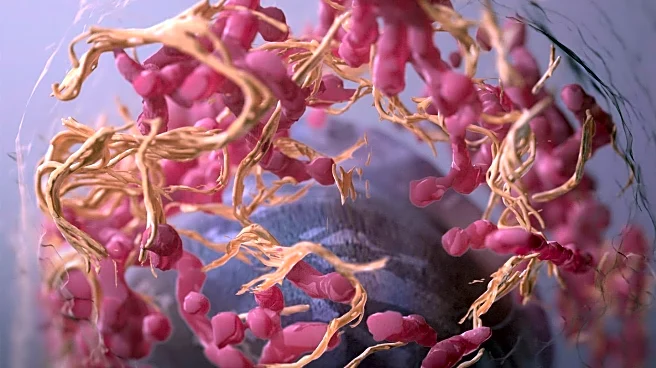What's Happening?
An exploratory study within the Birjand Longitudinal Aging Study (BLAS) has investigated the association between the SIRT6 rs117385980 variant and frailty and longevity. The study involved elderly participants
from Birjand, Iran, categorized into frail, pre-frail, and robust groups based on frailty status. The research aimed to understand the genetic factors influencing frailty and longevity, utilizing PCR-RFLP and Sanger sequencing for genotyping. The study found potential links between the SIRT6 variant and frailty, suggesting genetic influences on aging and health outcomes.
Why It's Important?
Understanding the genetic basis of frailty and longevity can inform public health strategies and interventions aimed at improving the quality of life for older adults. The study contributes to the growing body of research on the role of genetics in aging, potentially leading to personalized approaches to managing frailty and promoting healthy aging. It also highlights the importance of genetic research in identifying risk factors and developing targeted therapies for age-related conditions.
What's Next?
Further research is needed to validate the findings and explore the mechanisms by which the SIRT6 variant influences frailty and longevity. Larger, multicenter studies may provide more comprehensive insights into the genetic determinants of aging and inform the development of interventions to enhance health outcomes for older adults.
Beyond the Headlines
The study underscores the ethical considerations of genetic research, particularly in terms of privacy and consent. It also highlights the potential for genetic discoveries to influence public health policy and clinical practice, emphasizing the need for responsible and informed application of genetic data.











